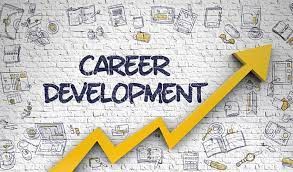Changing Gears, Switching Careers
Surprisingly, if you’ve been considering a career move, you’re not alone. In fact, many people are unsatisfied with their jobs and want to make a change, but it can be scary if you don’t know where to start. For some, it may be necessary to return to school. For others, you might be able to achieve a career transition through other means. In both cases, to make the shift as smooth as possible, it will be necessary to plan ahead before deciding whether or not it’s worthwhile to take the plunge. Every well-planned change of careers begins with self-assessment. Evaluate your likes and dislikes, your goals, values, interests, and skills. You may be able to enter a new field using the same knowledge base you already possess. For instance, a computer programmer might hate working for an oil company, but he/she can quite easily find a computer programming job in another industry. But even if you need to make a complete change, the process doesn’t have to be overwhelming. Once you’ve identified your core values and goals, you might have to go back to school to upgrade or add to your knowledge base. For people looking to enter an entirely new field of work, education is a must. Your new goals may require a Master’s degree, for example. In this case, night classes at your local college or university are a good option, especially if you plan on continuing your day job in order to pay the bills. Take the time you need to complete the degree so the transition doesn’t have to be overly stressful or painful. Many people who go back to school mid-career often take the time needed to obtain their degree – not rushing may actually save you time in the end. Going back to school is necessary if you need to learn entirely new skills and earn a degree or certificate that offers you credibility in the field, but for many people, attending school really is too expensive and time-consuming. Luckily, alternatives exist that make it easier to attend school and keep working. You might try an online school because of the flexibility offered by such institutions. Online learning can also be more affordable because of the low overhead costs associated with learning through your own computer. Or consider earning a technical certificate or undergoing other short-term training in lieu of more expensive choices. Once you’ve updated your education, the next step is to find a job and get a foot in the door of your new career. If you still work in your old position, you might be able to make a change internally, with the same company. A good way to do this is by taking advantage of tasks that no one else wants to do and volunteering to take on the extra workload. A larger workload can be difficult at first, but it does pay off. After identifying opportunities, network with hiring managers and before you know it, you could be promoted to a new position. If you’re pursuing opportunities outside of your current employment situation, be proactive. Network with people in the industry, and do everything you can to gain work experience in an area related to your chosen career. Changing careers may seem like a daunting task, but if you seek positive change in your work life, you won’t regret the effort required to make the transition. Thanks & Regards, Karishma Dandona






